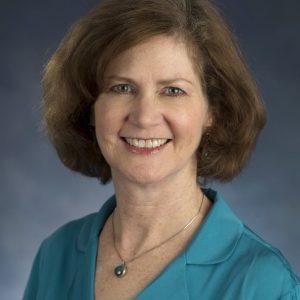CANCELLED! Patterns of polarization and its consequences for democracy
There are reasons to wonder whether severely polarized forms of mobilization are "bad" for democracy. Can they result in legislative paralysis and gridlock, or even threaten the survival of democracy itself?

Hovedinnhold
Many of the world’s democratic polities have become severely polarized. People have increasingly come to view different identities and interests as mutually exclusive: "Us" versus “Them”.
While scholars have shown how political mobilization is "good" for democracy, reflecting a vibrant, participatory civil society, there are reasons to wonder whether such severely polarized forms of mobilization are "bad" for democracy. Can they result in legislative paralysis and gridlock, or even threaten the survival of democracy itself?
These questions will be addressed by Professor Jennifer McCoy (Georgia State University) in conversation with Michael Alvarez (UiB). Professor McCoy will highlight common global patterns of such polarization and its consequences for democracy, with particular attention devoted to the United States, Turkey, and Venezuela.
Jennifer McCoy, PhD, is a professor of political science at Georgia State University. She was selected as a Senior Fellow at the Institute of Advanced Studies in Budapest, Hungary for spring 2019. While there, she continued her current research project on Polarized Polities to identify the causes, consequences and solutions to polarized societies around the world, including Venezuela, Turkey, Hungary, Thailand, Hungary, Greece, Bangladesh, and the United States.
McCoy coined the term “pernicious polarization” to refer to the political polarization that divides societies into mutually distrustful “Us vs. Them” camps, and undermines the capacity of democracies to address critical policy problems. Her most recent book-length publication is Polarizing Polities: A Global Threat to Democracy, published in the Annals of American Academy of Political and Social Sciences, in January 2019.
McCoy served as Director of the Carter Center’s Americas Program (1998-2015), leading projects on democratic strengthening, mediation and dialogue, and hemispheric cooperation. She is an internationally-known expert on Venezuela and co-authored the book International Mediation in Venezuela (USIP Press, 2011) about the Carter Center’s efforts to facilitate a peaceful resolution of Venezuela’s deep political conflict.
A specialist on democratization and polarization, mediation and conflict prevention, election processes and election observation, and Latin American politics, Dr. McCoy has authored or edited six books and dozens of articles. She is a life member of the Council on Foreign Relations; member of the International Women’s Forum; and co-chair of the Atlanta chapter of the Scholar’s Strategy Network.
Michael Alvarez is associate professor at the Department for Comparative Politics, UiB.
All are welcome!

